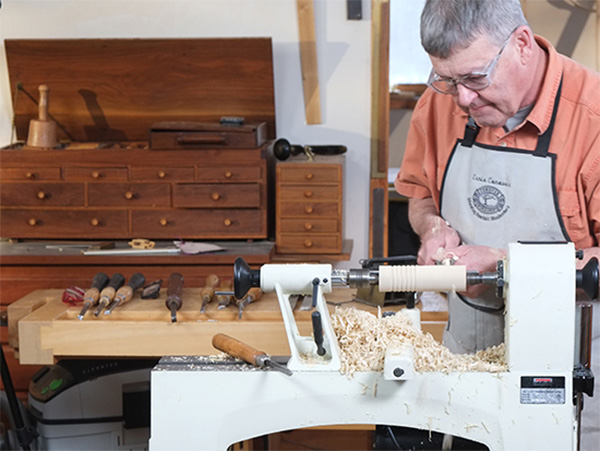
Back in the late 1970s, Ernie Conover began teaching woodworking classes. At the time, he and his father, also named Ernie Conover, were manufacturing the Conover Lathe, “and we decided to offer classes so that we could get people to use the machine properly and safely.” The Conover Lathe is no longer manufactured, but Ernie is still teaching classes both in general woodworking and in his specialty of woodturning. “If they wanted to learn to carve sculptures or something, I’d send them elsewhere, but for general woodworking, I’ll teach just about anything I know how to do,” Conover says.
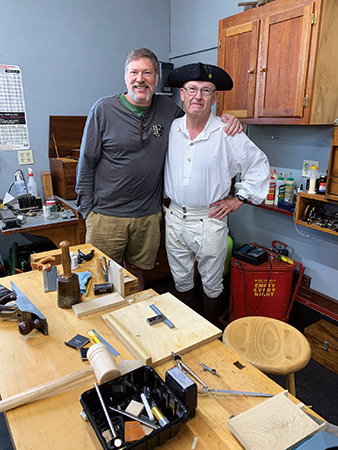
As for turning, “Turning is kind of like playing the piano. You can buy a Steinway, but unless you, first of all, have a teacher to guide you and then, secondly, practice, you’re not going to be very good at it,” Conover says.
His Conover Workshops classes include Bowl Turning and Woodturning Tools and Techniques. In addition to having been the woodturning columnist for Woodworker’s Journal for 11 years, Conover is the author of several publications, including The Lathe Book, co-host of WJ’s “Getting Started in Woodturning” DVD and a founding member of the American Association of Woodturners.
When he downsized six years ago from a 3,500-sq-ft shop to an 1,100-sq-ft “retirement shop” at his Parkman, Ohio, facilities (40 miles southeast of Cleveland), “I kept all my lathes,” Conover says.
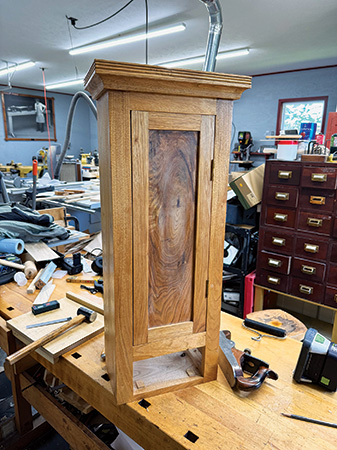
Hand Tools and High-tech Other shop equipment includes a Felder sliding table saw with a shaper head, a Hammer 12″ jointer-planer, band saw and drill press. There’s also a big collection of hand planes because, as Conover says, “I’ve always had a real love of hand tools.”
A six-day hand tool joinery class is a long-running course offering. “I had one doctor tell me it was the most intense experience he’d had since medical school,” Conover says, with class time stretching to eight or nine hours a day if students choose to work beyond a dinner break.
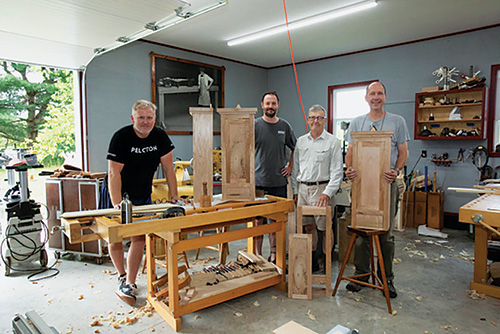
“On the other end of the spectrum,” he says, Conover also offers classes specializing in the use of Festool machinery, “and now I’m even playing around with the Shaper Origin CNC Router.”
He describes the Shaper Origin’s navigation via scans of patterned adhesive tape as “creating a sort of celestial path that it can set a GPS up on and navigate.” Recently, Conover used the tool to cut a piece for wife Susan’s loom, drilling a hole with accuracy down to thousandths of an inch.
Weaving and Woodworking Overlap
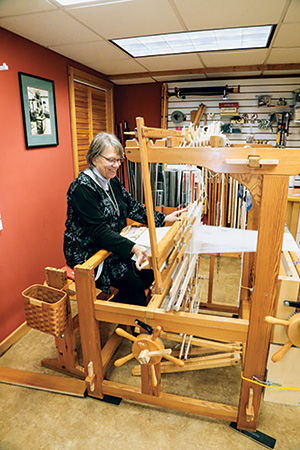
Susan Conover is also part of Conover Workshops, teaching courses in spinning and weaving from a six-loom home studio. Among her fiber arts experience is spending five years as operations manager at Vavstuga Weaving School in Massachusetts.
Ernie Conover says that, “We have found there is an overlap between people that have a spouse that weaves and a partner that likes woodworking.” He and Susan will often offer simultaneous courses, allowing participants to “buddy up on hotel rooms.”
The Conovers also travel to teach courses to either clubs or individuals, with Susan having taught fiber arts classes in South Dakota and Colorado in fall 2023 and Ernie recently scheduling a hand tool joinery class for the Western Ohio Woodworkers in Dayton for February 2025.
Other Learning Options
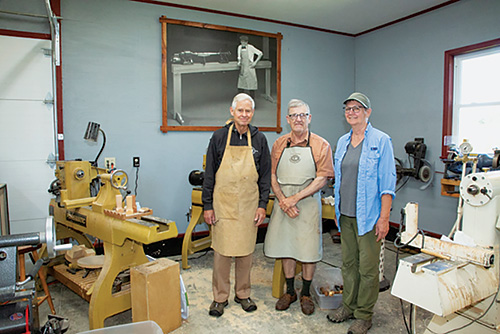
At their Parkman, Ohio, headquarters, Ernie limits his woodworking classes to a maximum of four students. It used to be eight at the older, larger shop, when he also had more assistance from an apprentice.
Lately, however, he’s been offering a lot of private lessons. Those might happen either at his shop or the student’s, with price breaks occurring for additional enrollees. “They save a little bit every time they can bring another person into the game, and if you can find three to four to take one of the scheduled classes, I’ll run it at the same price as the scheduled,” Conover says.
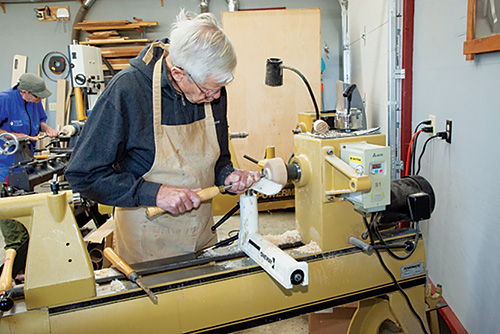
Private lessons, however, also provide the opportunity to tailor woodworking content to students’ specific interests. “I have two fellows here that are local who take a two-day class about four times a year from me, and we just figure it out as we go,” Conover says.
For more information, visit conoverworkshops.com or call 440-346-3347 for information about woodworking and woodturning classes.





